Josh Smith: “I was definitely a Tele guy in denial, my whole life”
We talk to the man with a black Chapin T-Bird, scorching tone and astounding technique
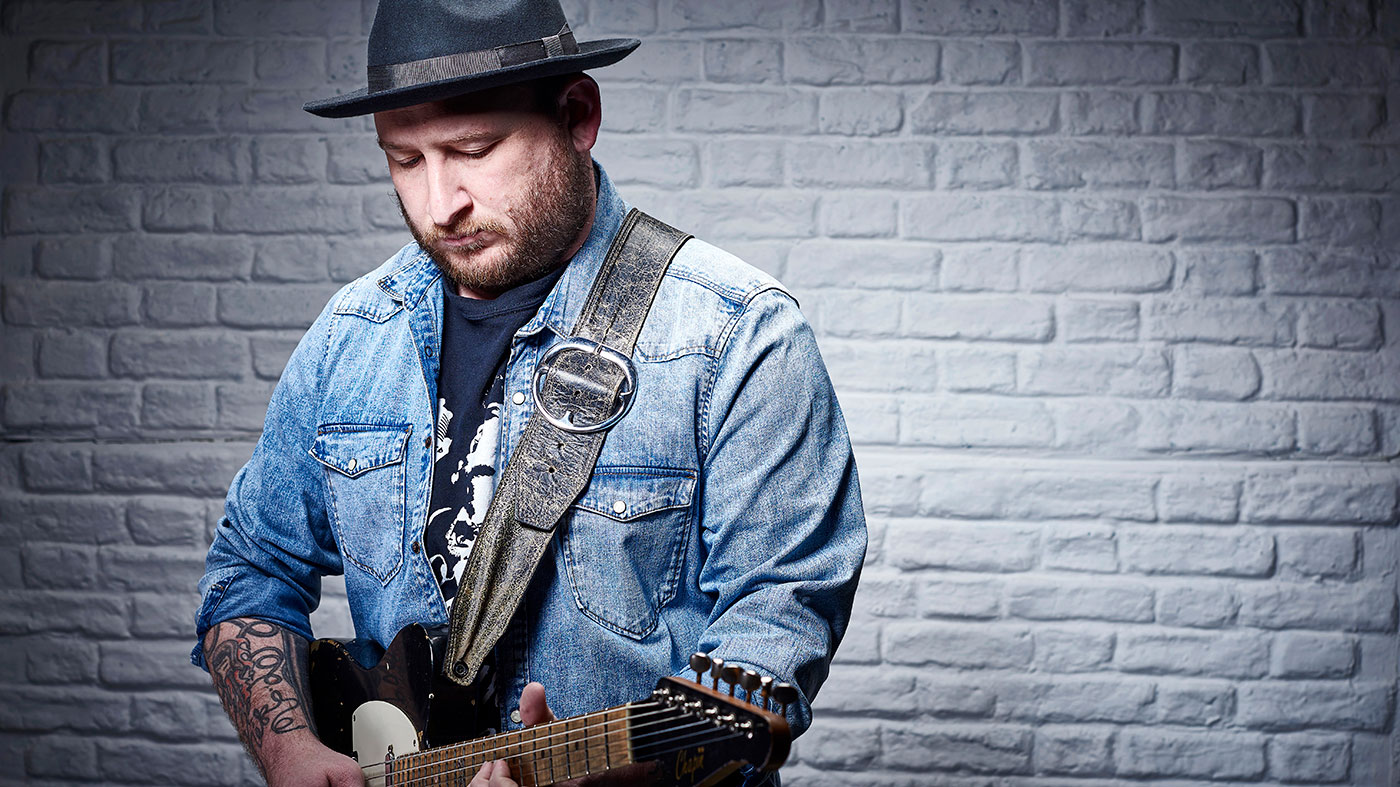
Want all the hottest music and gear news, reviews, deals, features and more, direct to your inbox? Sign up here.
You are now subscribed
Your newsletter sign-up was successful
When you meet Josh Smith, it soon becomes apparent, that he’s as big a gearhead as you’re ever likely to meet. Everything in his signal chain is there because it’s survived rigorous comparisons to other units in its class - and his style is a riotous mix of red raw country, searing blues and the slickest jazz that simply stupefies the senses. He’s been playing since he was three years old when his father surprised him with a guitar for his birthday.
“I banged it around for a bit, then at six I asked to have lessons,” he laughs when we sit down at our studios for a chat. By the time he reached 12, Josh started attending blues jams in his native Florida.
“The first time I went I got up to play at this well-known blues club in Fort Lauderdale and the crowd went crazy,” he says. “In retrospect I realise it’s because I was four foot five with a little baseball cap and the guitar was bigger than me… I was hooked and thought, ‘This is what I want to do for the rest of my life’.”
I’m the type of guy that, be it music, gear, videogame consoles or cameras, once I get interested in any subject I dive in 100 per cent
A move to LA at 22 saw Josh working his way up on the session and sideman scenes, but now he’s breaking out to do his own thing. A self-confessed obsessive where tone is concerned, we asked him when his quest for the ultimate gear began.
“As a kid it was just like, ‘What do I like and what sounds right?’ So I was a Strat guy mostly as a kid. I love Stevie Ray, so I always had a Tube Screamer and a Strat and the rest was like… whatever. I’d have a fuzz here and there, I’d have a Uni- Vibe or a delay, but I was pretty simple.
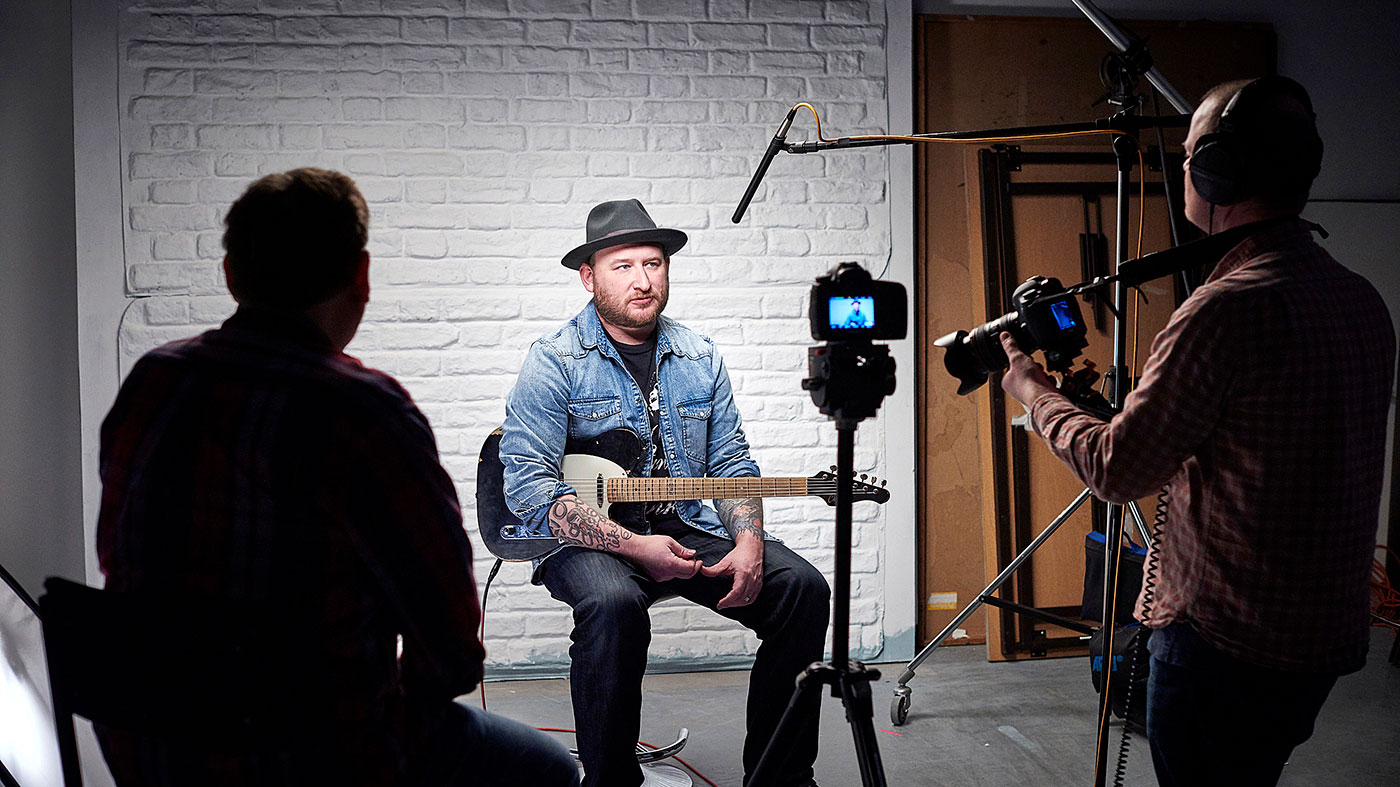
“Then, when I moved to LA, I started having to really learn about gear because when someone called you for a session and said, ‘We need a Mike Campbell thing’, I didn’t own an AC30, I didn’t own a Rickenbacker and I didn’t know how to get those tones. If someone asked me how to get The Edge’s delay I had no idea that I needed a dotted eighth note and a quarter note in parallel.
I was looking for every piece of my chain to have the maximum amount of dynamic range and the least amount of compression
“I’m the type of guy that, be it music, gear, videogame consoles or cameras, once I get interested in any subject I dive in 100 per cent. I have to know everything I can know and I started to become that way about gear and tone and pedals and amps and guitars and ‘Why does this pickup sound like that?’ and ‘Why does this wood sound like this?’ and ‘What’s the differences with radiuses on fretboards?’ I got really nerdy with the stuff and dove in and started finding these common threads of the things I started to like.
Want all the hottest music and gear news, reviews, deals, features and more, direct to your inbox? Sign up here.
“The main one was dynamics. I was looking for every piece of my chain - from pickups to the cable that comes out of my guitar to the ’board, to each pedal on the ’board, to the amp, to the speaker that’s in the amp - to have the maximum amount of dynamic range and the least amount of compression, because I want to do that with my hands.
“So compression became an effect to me - something to be used on a session when called for, but most of the time I want it out so that I can have dynamics. So that led me to searching out pieces of gear that fit that criteria, basically. So over the years I’ve found the things that work for me in that way.”
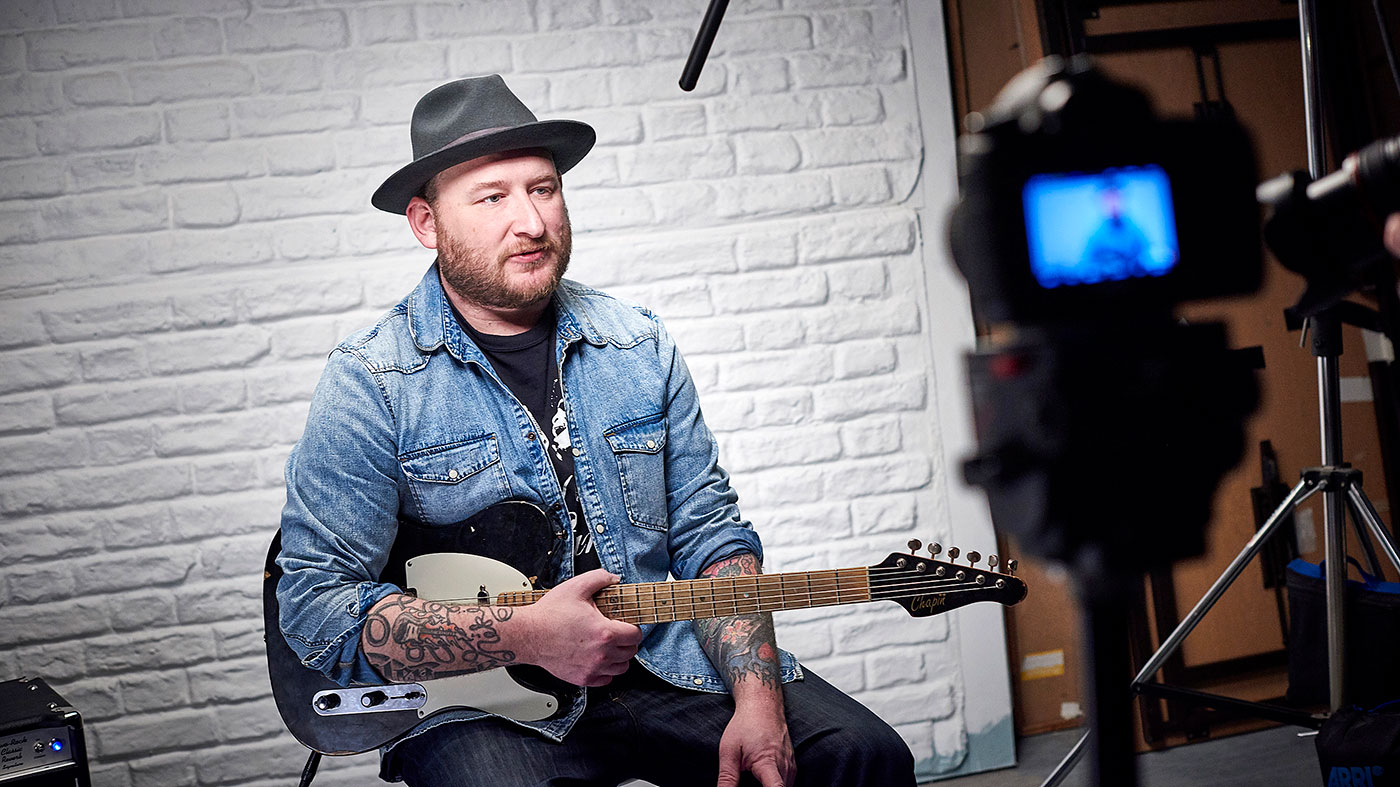
The T-Bird gang
Your main guitar is a Bill Chapin T-Bird - what turned you onto that particular style of instrument?
“I was definitely a Tele guy in denial, my whole life. The Strat was my home - definitely not Les Pauls or 335s. The Gibson scale felt weird to me; it’s shorter and with my heavy strings it felt so slinky and my vibrato would get wider and my bends would get over, so I was Strat, Strat, Strat, Strat. I had Teles over the years but never one that I connected with, I guess. But it’s part of the transition from doing my thing to becoming a real professional guitarist, y’know?
[My Bill Chapin T-style] made me a Tele guy, just like flipping a light switch. Now, it’s like I can’t function without it - the Tele is me
“I met Bill Chapin, who built my main guitar, and of course, when I ordered the first guitar from him I ordered a [Stratahoula] because that was my home. So I get this Strat and I love it and it’s my number one, right? The I get hired for this gig with Taylor Hicks and his vibe was blue-eyed soul, country and R&B, so on a lot of these tunes I thought, ‘Okay, I need to play a Tele, I’ve got to Steve Cropper it up…’
“I had originally ordered an Esquire from Bill because I’d played this Esquire, a pine-bodied one, a copy of the original Fender prototype and I’d told him that I wanted an Esquire like that. He made the neck like the one he’d made on my Strat - V neck - and he was making a pine body, but I’d got this gig and so I said, ‘Can you scrap the pine body and take the neck you made me and make an ash body with two pickups? I need a Tele really fast…’ He then said, ‘I can do it really fast, but it’ll have to be a solid colour so I can ship it out to you right away’. I said, ‘Just spray it black… whatever, it doesn’t matter,’ so he quickly made an ash body, put that neck on, painted it one coat of black, made the pickups, put it together and sent it to me.
“The second I picked it up it was like, ‘I’ve been waiting for this my whole life’. Overnight it changed the way I heard things and made me a Tele guy, just like flipping a light switch. Now, it’s like I can’t function without it - the Tele is me.”
Have you found an amp that feels like home yet?
It’s that 6L6 Blackface thing, scooped midrange, mixed with the EL84 - that's my sound
“When I found the Super Reverb it was home. It was about finding the right volume level where it breaks up so that I avoid compression. I started to realise that to get that sound I liked I needed headroom. I couldn’t have an amp that just folded back straightaway and gave up the ghost. The Super Reverb was the first one that had the right kind of range I needed. It was loud enough, but also still had a bit of character, it wasn’t just sterile and loud like a Twin.
“Then for some reason I was flying to a gig and was asked, ‘What do you want for backline?’ and I said, ‘Give me a Super Reverb and an AC30.’ I’d never asked for an AC30 ever, but I just wanted to try it with the Super, and once I’d found that combination it was kinda like the Tele thing, it was, ‘This is my sound!’ It’s that 6L6 Blackface thing, scooped midrange, mixed with the EL84, just breaking up Vox thing.
“Together it just became this super-wide big thing, where this amp is doing what this amp isn’t doing, and when you put a pedal in front they distorted in a different way. And so it wasn’t so much about volume, it was about width and space and heft, and that was the combination I hit on and is still pretty much what I use for every gig. My main two Morgans are the JS40, which is like a Super Reverb, and the AC40, which is like a Vox and that’s what I use pretty much all the time.”
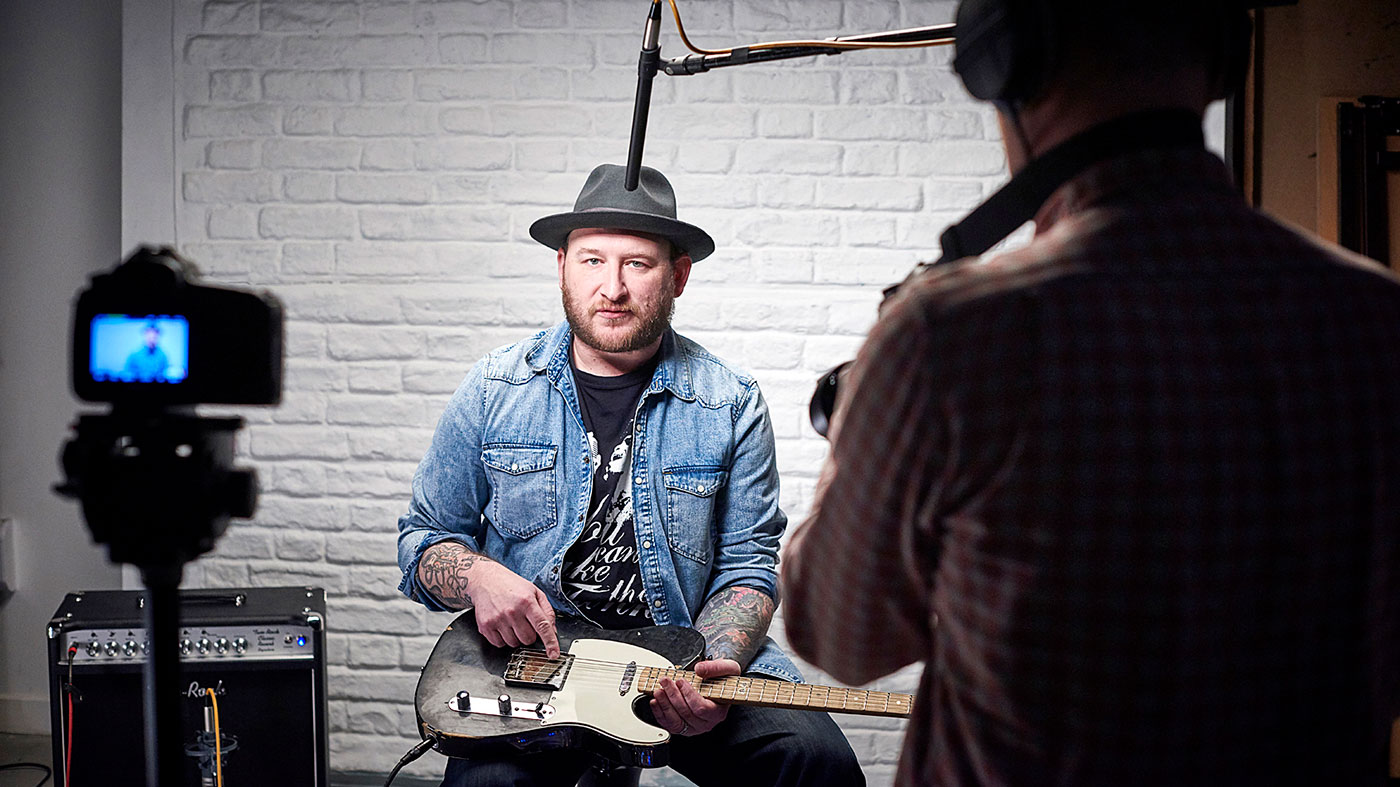
From Bob to BB
Many players have told us that their pedalboard is a work in progress. Do you find yourself constantly refining what’s on your ’board?
“What’s funny is that I don’t so much swap things on my pedalboard, I just build another one. I like to keep them intact, so I have a few ’boards and they all follow the same path. They all have Tchula, no matter what - that’s my sound, a Lovepedal Tchula - they all have a fuzz, each has a different one; a lot of them have that octave, the Lovepedal Believe; they always have two delays, one vibey and one that gives me my slap; now they always have an [Eventide] H9 because that’s an invaluable tool for me on my gigs and on sessions. Then the rest is to flavour; it’ll be like, ‘You know what? I’m gonna put a flanger on this ’board’ or ‘I’m gonna put a chorus on this ’board.’
“The other thing I found was that, even though I’m a blues guy and a simple dude, I like the tech and I’m a switcher guy at heart. When I moved to LA I searched out Bob Bradshaw because, like every kid, I’d been reading his name for 20 years in Guitar Player. It was just like Dumble; it was like, who are these people?
“So I went to Custom Audio and met Bob and I didn’t even understand what the switching thing was; I just knew people had his rigs, so he explained it to me and it was like, ‘Wow, this is amazing!’ The biggest thing was, when no pedals were on, it really, truly sounded like you were plugged straight into your amp, and this was the time I was becoming obsessed with that purity of tone. So it was like, ‘I have to have that. When I’m playing through one pedal I’m only playing through one pedal, it’s not even running through the other ones.’
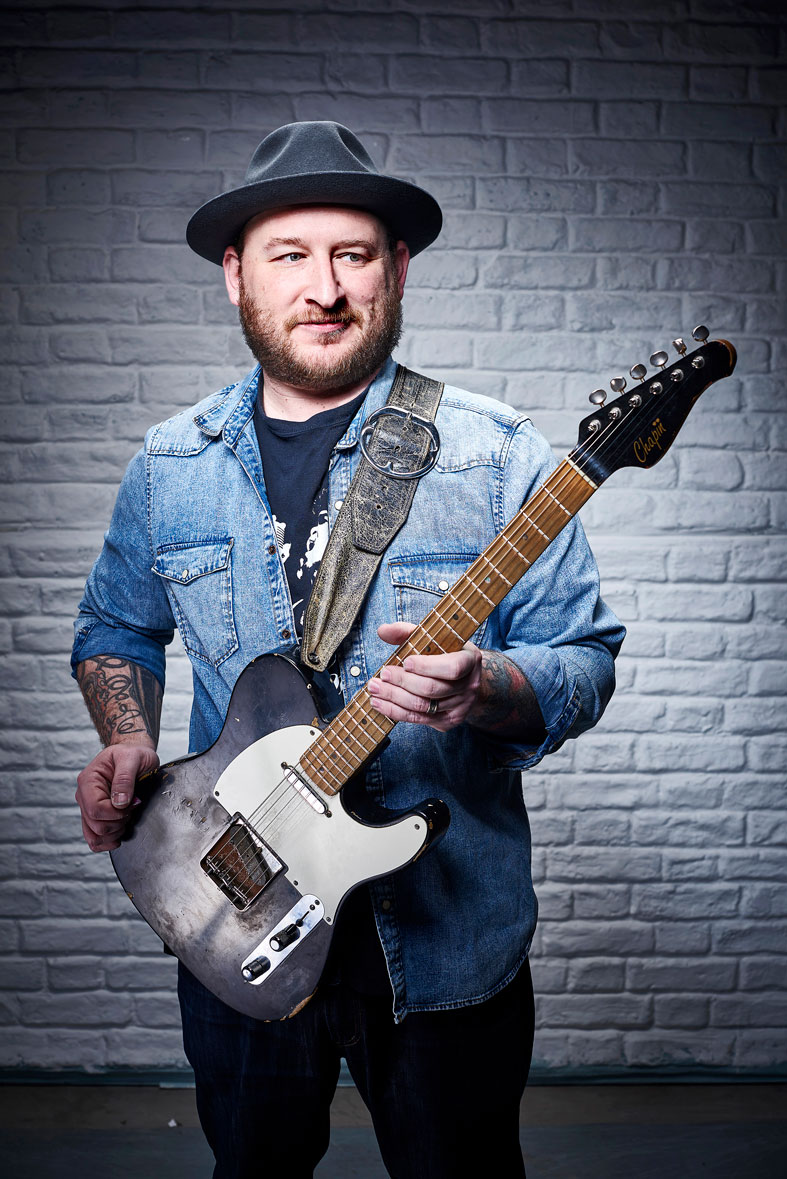
“Then I became a convert in the ways of being able to make presets, especially when I was on tour as a sideman with pop acts or I would have to get a lot of different sounds. I could just programme the songs and the setlist and so this was the sound for the verse and this was the sound for the chorus. I could just press one button and it would do all those things at once, so I’m definitely a proponent for that system for both of those reasons.
“So all my ’boards have switching; I have a Bradshaw custom ’board, I had a Bradshaw rack with a switcher and my small 'board is the one that Dan [Steinhardt] from TheGigRig put together and it has the G2, which is a great switcher.”
What would you consider to be a career peak for you so far?
“As a sideman, playing with Mick Jagger was the biggest thing ever. I played with him on The Grammys; it was a tribute to Solomon Burke who had just passed and we did Everybody Needs Somebody To Love, which The Stones did on their very first record and he was so incredibly nice as well. You couldn’t ask for nicer and he was so enthusiastic, you could tell that he still loves music so much. That was an eye-opener.
As a kid, I got to open for BB King a number of times. He was the nicest man - he’d say hello to everybody
“As a kid, I got to open for BB King a number of times. He would come to Florida and I was pretty popular, so I got to be around BB for a couple of years in a row for a week at a time and see him every night, talk to him a little bit, see how he carried himself - that was huge for me.
“He was the nicest man - he’d not be feeling well, but after the show there would be a line of 50 people waiting and he’d say hello to everybody, take a picture with everybody, shake hands, and that taught me some of the things that are important being a professional.
“Those two moments were special for me, just getting to be in those environments. Every day I get to do this is an unbelievable day. I’m so thrilled that anyone has any interest in hearing what I do and it affords me to continue to do it. I’m not made to do anything else!”
Josh Smith’s album Over Your Head is available now via CrossCut Records.

